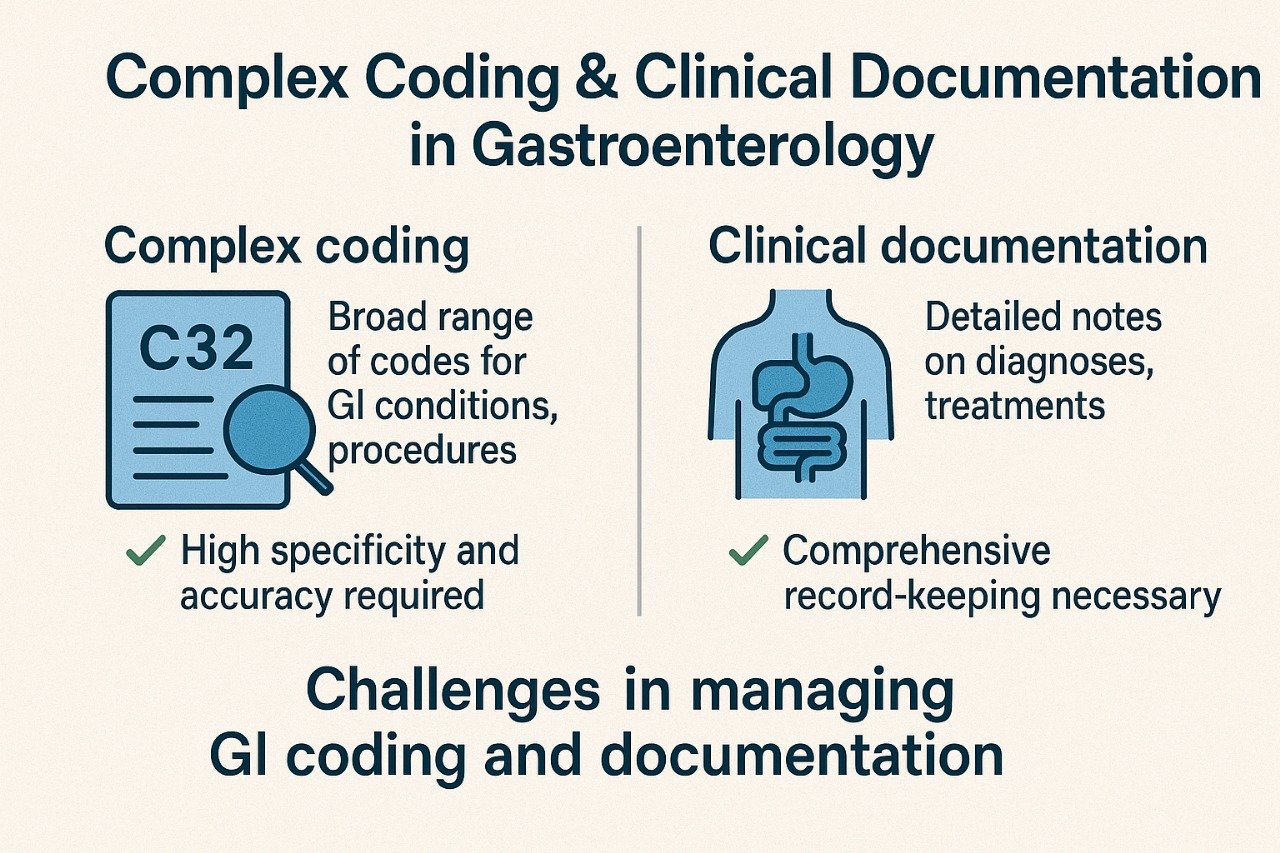
Accurate coding and comprehensive clinical documentation are cornerstones of successful revenue cycle management in gastroenterology. The specialty involves a wide range of procedures—from colonoscopies and biopsies to capsule endoscopies and motility assessments—each of which must be accurately documented and correctly coded using hundreds of CPT and ICD-10 codes to satisfy insurer scrutiny. Mistakes in this process can result in delayed payments, costly audits, or claim denials, all of which negatively affect a practice’s financial health and operational stability. In particular, time-based coding for Evaluation and Management (E/M) services must reflect exact timing, as even minor discrepancies of a few minutes can result in denials (MedXpert Services, 2024). This underscores the importance of precision in every documentation detail, especially for services where time determines the billing level.
Gastroenterology billing is especially susceptible to common coding errors, which include inaccurate use of modifiers, omission of lesion-specific details, incorrect bundling of services, and misclassification of place-of-service codes. These errors can lead to avoidable claim rejections, delayed reimbursements, and increased administrative workloads (MedXpert Services, 2024). The implications are not just financial; repeated denials can lead to provider audits or investigations by payers, potentially harming a practice’s reputation and standing with insurance networks. This complexity is further heightened by frequently updated payer guidelines, coding rule changes, and payer-specific nuances, all of which demand constant vigilance by billing teams.
To address these challenges, many GI practices are investing in Clinical Documentation Improvement (CDI) programmes designed to train physicians and billing teams in best practices for documentation. These programmes emphasise the need for detailed procedure notes, accurate anatomical site coding, and comprehensive E/M documentation aligned with the services delivered. Additionally, practices are adopting automated coding tools embedded within Electronic Health Records (EHRs), which assist in real-time flagging of missing or inconsistent data points (MedXpert Services, 2024). These tools support front-end accuracy, ensuring that claims submitted for reimbursement are clean, complete, and compliant with payer standards.
The next frontier in coding accuracy is machine learning-based auditing tools such as “Deep Claim” and intelligent coders. These technologies analyse vast datasets to detect inconsistencies, predict potential denial flags, and suggest corrections before claim submission. According to recent research, the application of such AI-driven systems can reduce claim rejections by up to 22 % while improving compliance and reducing the risk of post-payment audits (arXiv.org, 2023). These platforms serve as a safety net, especially for high-volume practices, by learning from historical claim data and automatically flagging documentation mismatches or modifier misuse.
In conclusion, gastroenterology practices must master a highly nuanced and regulated billing environment. With coding complexity growing and payer scrutiny intensifying, adopting CDI programmes, automation tools, and AI-assisted coders is no longer optional but essential. These investments not only reduce financial risk but also free up clinical and administrative staff to focus on patient care, enhancing both practice efficiency and patient outcomes.



